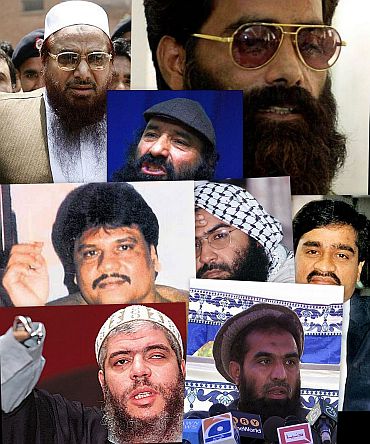
Following the death of Osama bin Laden, India hastily sent a list of most wanted terrorists to Pakistan hoping to build up pressure on them. But much to the embarrassment of the Union home ministry, two accused on the list were traced to Mumbai. Home Minister P Chidambaram admitted that the first blunder was a lapse on the part of the Mumbai police and the Intelligence Bureau, but after the second error each one is pointing fingers at the other. Vicky Nanjappa reports.
The list of most wanted terrorists sent out by India to Pakistan has left the both the security agencies and the home ministry red-faced. Two days after it was reported that Wazhul Kamar Khan, one of those mentioned the 50 most wanted list of terror suspects, was living in Thane, a 1993 bomb blast accused Feroz Abdul Khan, alias Hamza, was found to be locked up in Arthur Road jail. He has been an inmate since February 2010.
But why was the Central Bureau of Investigation's larger list not verified and updated? The 50 most wanted on this list was culled from this list and new names were added by the National Investigation Agency and the Mumbai police.
...
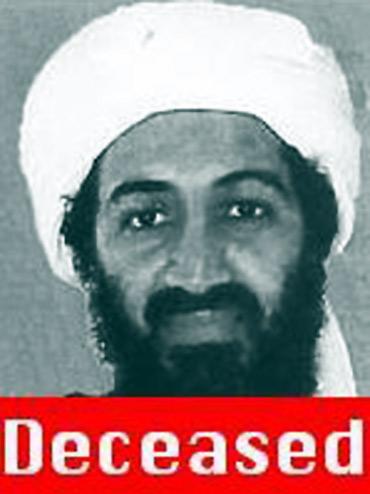
However, today the Central Bureau of Investigation, the Mumbai police and the Intelligence Bureau have all gone on the defensive. And the blame game is on. The police say that the list was sent out in the year 2010 and it had not been updated at New Delhi. According to them, New Delhi should have asked for an updated list before sending it out to Pakistan.
However, this debate is countered by the Intelligence Bureau. Officials from the IB said it was the responsibility of the police to send an updated list as and when there was the change in the status of those on the list.
The Mumbai police department, meanwhile, is looking into the matter and at the moment there is no indication of any action. However, Mumbai Police Commissioner Arup Patnaik has vowed that those responsible in the department would be held accountable for their lethargy, say insiders.
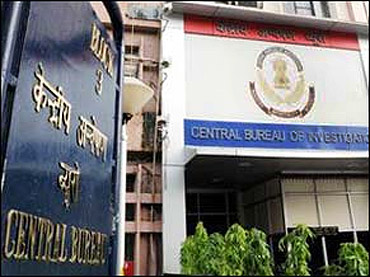
A senior police official points out that the system is in a shambles. "There is a cell at the CBI office in New Delhi that needs to update the list and for them to do so the local police need to keep them updated. This job is assigned to a constable on most occasions, who fails to understand the seriousness of the matter," he said.
The police official also points out that handling terror-related cases has become a matter of pride in the department and they often try to put down their colleagues to get an upper hand in the matter.
An IB official seconds this. The police continue to look at terror suspects as local criminals despite such a looming threat of terrorism, which is a national issue. "We know of cases where two officers in the same department and same state do not cooperate with each other. They have undertaken operations without each other's knowledge and have even planted moles in each other's departments to get the better of each other. Hence it is obvious that when one officer has information he is bound not to share with his colleague," said an IB official.
Such cases have to be solved systematically and the seriousness of the matter has to be realised by the local police. Each time there is an alert issued or a person has been nabbed the list has to be updated immediately and an intimation sent to New Delhi. From New Delhi too the response should be prompt, he official added.
However, the police feel that the list is with the IB and it's up to them to keep gathering information and updating their database. However, the latter believes that their job is restricted to providing information and picking up intercepts.
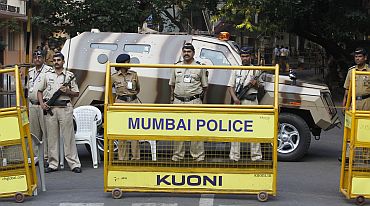
"The police should first stop treating such cases as routine. These are not petty theft cases and matters of routine criminal investigation and prosecution. These issues need to be monitored and dealt with in an aggressive manner. The security of the state should be of paramount concern since it determines the main strategic approach in formulating foreign policy," he added.
Talking about the goof-ups in the most wanted list, Sahay said he failed to understand why the list was not verified. "We had an original most wanted list of 20. Those should have been revisited and the additions to the list should have been carefully weighed, re-weighed and assessed. There cannot be a luxury of margin of error in such cases and especially not while dealing with Pakistan and that too on the issue of terror," he added.
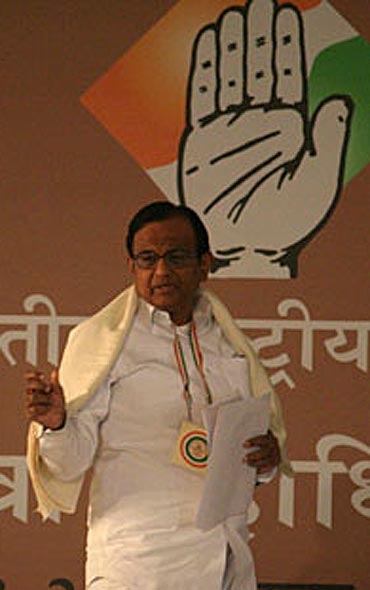
The former R&AW chief has one question for the government of India: What was the rush? The government appears to have been driven by this intense desire to push an element of its agenda in the event of Osama's death. There was a debate whether India could do an Osama-like operation and in this bid to do something similar India put out this list, he said.
What have we got? "We look like a bunch of nincompoops at the end of it all. What makes matters worse is that instead of getting into damage control mode, the debate today has become fractured on political lines. Political entities have seen this as an opportunity to seek resignations. I don't expect that the Cabinet should resign but heads must roll and people must be made accountable in at least such matters," Sahay concluded.